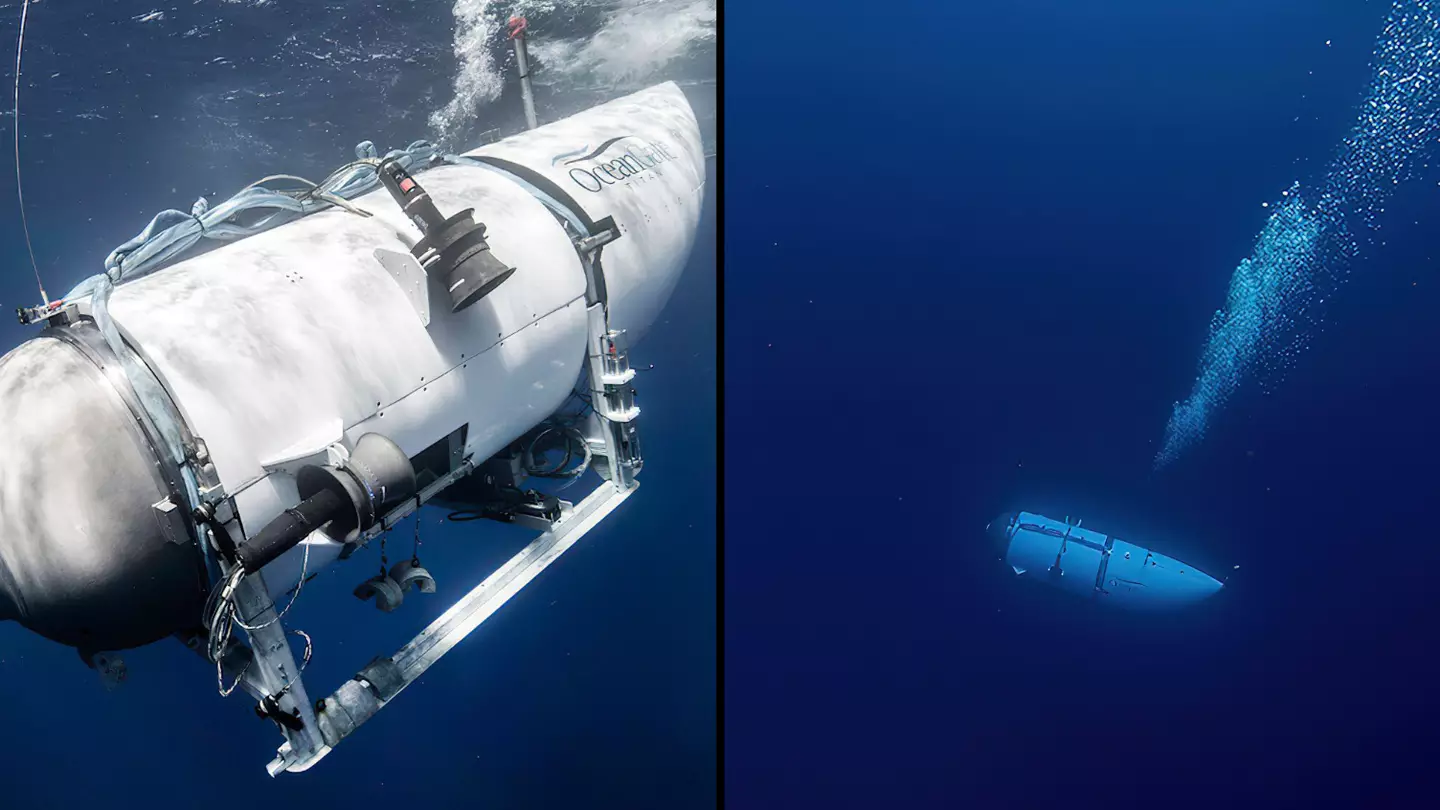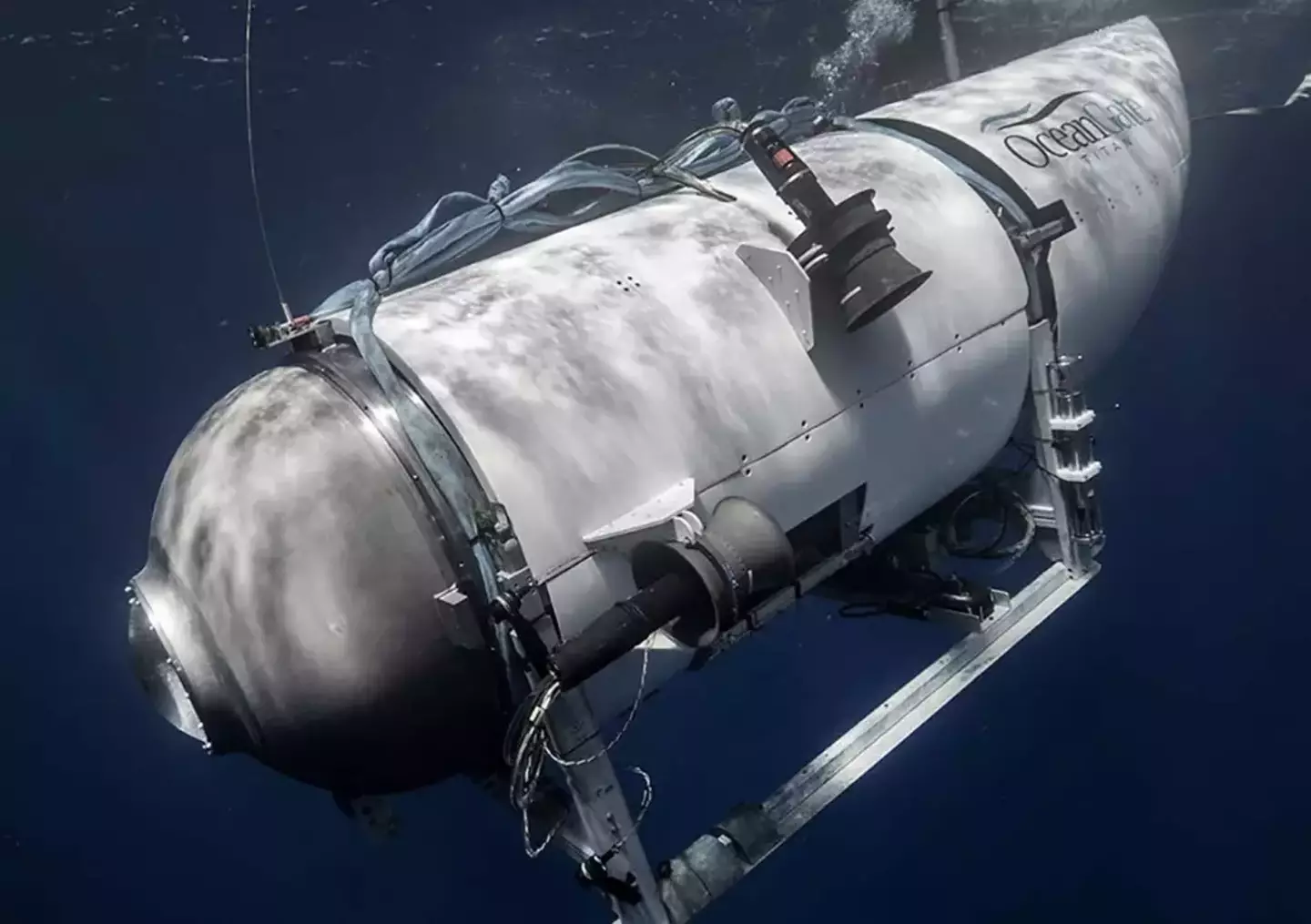
As the search for the missing Titan submersible intensifies, an expert has revealed what might be happening to those onboard as their air supply dwindles.
The OceanGate sub initially set out on Sunday (18 June) with 96 hours of oxygen, as completed an exploratory dive around the Titanic shipwreck.
With oxygen set to run out in a few hours, a doctor has spoken about the terrifying condition that could be affecting crew members.
The search for the missing sub is still ongoing – with the US Coast Guard giving a press conference about the rescue effort yesterday (June 21).
Advert
Despite knowing the last location of the OceanGate sub, search teams are still having to investigate a remote area in the Atlantic – which is roughly twice the size of Connecticut.
With little to help them locate the missing men, the search has continued for several days – with the sub’s air supply continuing to dwindle.
It’s likely that those onboard have already begun to feel the effects of oxygen deprivation, which is also known as hypercapnia.
A potentially fatal condition, the body begins to shut down as increasing amounts of carbon dioxide enters the patient’s bloodstream – causing intense drowsiness.
Advert
FOLLOW LIVE UPDATES ON THIS STORY HERE
In an interview with the BBC, a hyperbaric medicine expert at Memorial University in St John's explained that those onboard may already be experiencing the terrifying condition.
If left untreated, those affected will become drowsy as the final hours of air supply pass by.
"As levels of carbon dioxide build up, then it becomes sedative, it becomes like an anaesthetic gas, and you will go to sleep," explained Dr Ken LeDez.
Advert
He added that it would be a slow process, explaining: "It's not like switching off a light, it's like climbing a mountain - as the temperature gets colder and metabolism falls [it depends] how fast you ascend that mountain."
The members of the crew may survive longer than others he added, saying 'it depends on how cold they get and how effective they are at conserving oxygen'.

Tragically, the Titan’s air supply is expected to run out at roughly 11am (UK time), with teams desperate to find the missing men.
Advert
On Tuesday (June 20), a Canadian plane stated that it heard a ‘banging’ sound – which investigators are now trying to pinpoint.
In yesterday’s press conference (21 June), US Coast Guard Captain Jamie Frederick said that he ‘doesn’t know’ what the sound was.
"We don't know what [the noises] are, to be frank with you," he told the press, adding: "We're searching in the area where the noises were detected."
However, he insisted that teams need to remain hopeful with other teams being involved in the extensive search in the Atlantic Ocean.
Advert
Despite this, the five men and the submarine remain unaccounted for.
The four passengers include British billionaire explorer Hamish Harding, Pakistani businessman Shahzada Dawood and his 19-year-old son Suleman, as well as OceanGate’s CEO Stockton Rush.
Experienced French diver Paul-Henry Nargeolet is also onboard and was the only crew member during the vessel’s sudden disappearance.
Featured Image Credit: American Photo Archive/AlamyTopics: Titanic, World News, US News
